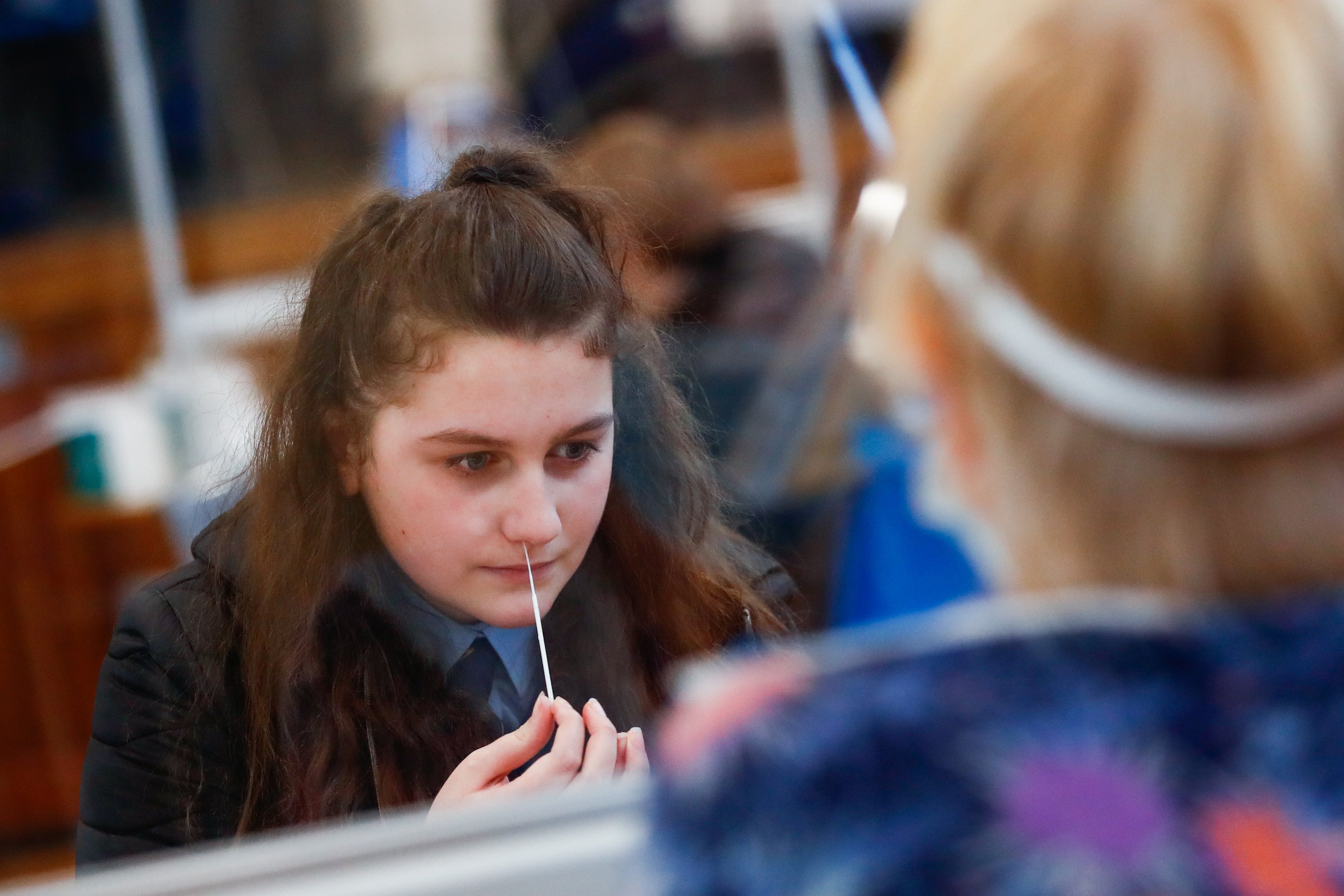Schools to trial daily Covid testing to replace need for self-isolation
Pilot scheme means students classed as close contact of positive case can remain in school

Several schools in England are trialling a Covid-19 daily testing scheme that would eliminate the need for self-isolation among those who come into contact with the virus.
The clinical trial means students classed as close contacts of a positive case are able to remain in school.
About 200 pilot schools and colleges are reportedly expected to begin daily contact testing after the Easter holidays.
The government had proposed to launch the trial as part of its Covid-19 winter plan, but paused the plans in January amid the emergence of new variants.
But earlier this month, government scientific advisors concluded that daily testing offers a similar level of effectiveness to quarantine in reducing transmission, while allowing children to remain in lessons.
Read more:
- Follow Covid news live: Latest lockdown updates
- Von der Leyen says AstraZeneca must ‘catch up’ on vaccines to EU
- Lockdown roadmap dates: Which rules change on 29 March?
- Extreme lockdown laws extended for a further six months despite major Tory revolt
- Pfizer Covid vaccine produces ‘robust’ antibody response after first dose, new study shows
Scientific Advisory Group for Emergencies (Sage) said at its 11 March meeting: “Daily testing approaches may also offer other benefits in some circumstances (for example, fewer days of education missed if used in schools).”
The success of such a scheme is highly dependent on behavioural factors, Sage cautioned.
A majority (90 per cent) of those required to self-isolate after coming into contact with a positive case said they had followed self-isolation rules for the entire 10-day period, figures published by the Office for National Statistics showed on Friday.
Westhoughton High School in Greater Manchester is among the schools already taking part in the daily coronavirus testing trial.
As part of the trial, asymptomatic pupils identified as a close contact of someone who has tested positive for Covid-19 can opt in for daily testing instead of having to self-isolate.
Those that chose to remain in school are tested using antigen lateral flow devices at the start of each day.
A negative test means pupils can continue to receive classroom teaching, but they are told to self-isolate outside of school and follow the hands, face, space guidelines.
If a pupil returns a positive test on any day, they are told to self-isolate immediately for 10 days.
Some 38 Westhoughton High School pupils who would have been sent home after two positive cases in year seven were able to remain in school for lessons after they joined the pilot scheme.
“The children are really pleased [to be taking part],” headteacher Patrick Ottley-O’Connor told the Manchester Evening News.
“They want to be learning and it’s been a big relief.
“The week before the trial started we had a bubble burst in year 10 and 69 students had to isolate, some of them were in tears.”
A government spokesperson told the Manchester Evening News: “Schools and colleges are being invited to participate in a clinically overseen trial of daily contact testing.
“Half of participating schools will act as a control group, following all existing guidance around testing, while the other half will give students that are close contacts of those who test positive the option to take a test each day, and remain in school while their tests are negative.
“The effectiveness of both policies will be evaluated on an ongoing basis by an independent safety and efficacy monitoring committee.”
Lateral flow tests remain a controversial solution and have been found to be better at identifying Covid-19 in people with symptoms than in those who are asymptomatic.
The diagnostic accuracy of different brands of tests also varies widely, a Cochrane review found.
The analysis found lateral flow test sensitivity in symptomatic people ranged from 34 per cent to 88 per cent, with an average of 72 per cent.
In those without symptoms, the tests correctly identified an average of 58 per cent of those who were infected.
World Health Organization performance standards state tests must correctly identify at least 80 per cent of infected people and exclude infection in at least 97 per cent of uninfected people.
Join our commenting forum
Join thought-provoking conversations, follow other Independent readers and see their replies
Comments